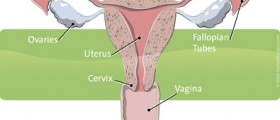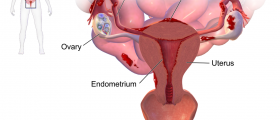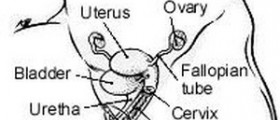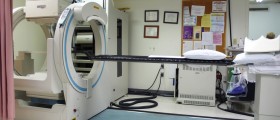
Endometrial cancer is one of frequently reported malignant tumors in women who have entered menopause. The tumor originates from endometrial cells and after some time may easily affect nearby tissues and organs or even spread to other organs in the body.
Endometrial Cancer Clinical Characteristics
Abnormal vaginal bleeding is the distinguishing sign of uterine cancer. Initially, there is watery and blood-streaked flow which after some time becomes more rich in blood. At the end there is bright blood leaking from the vagina. Any vaginal bleeding affecting women who have already entered menopause is considered abnormal and requires prompt medical evaluation. However, not all such bleeding is associated with endometrial cancer.
Additional symptoms and signs of endometrial cancer that may occur include pain/difficulty while urinating, pain during sex, spontaneous pain in the pelvis or lower portion of the back. Endometrial Cancer Treatment Options
As far as endometrial cancer is concerned treatment basically depends on the stage of the disease. So, once the cancer is confirmed, doctors determine the stage of the disease. There are four stage of endometrial cancer. Apart from stage of the disease, there are several more factors which influence the type of treatment patients are supposed to undergo. They are patient's age, the grade of the tumor, spread of the disease, infiltration of nearby tissues/organs etc.
Surgery is recommended in the majority of women suffering from endometrial cancer. Such patients undergo radical hysterectomy which includes surgical removal of the uterus, cervix and surrounding tissues and organs (the ovaries, fallopian tubes, regional lymph nodes and the upper part of the vagina).
After surgery, women may remain hospitalized for a couple of days and are then discharged. They may engage in everyday activities approximately 4-8 weeks after surgery. The recovery time may be hard because some women deal with postoperative pain, discomfort and some may even develop certain complications.
Women who have not been in menopause prior hysterectomy will enter menopause as soon as they are operated. Menopause will bring several more problems such as hot flashes, vaginal dryness and night sweats.
Once the woman suffering from endometrial cancer is operated she needs to have regular check-ups. Some women may additionally need to undergo radiation therapy. This treatment is supposed to kill the remnant cancer cells inside the pelvis.
Women with advanced disease as well as those who cannot be operated because of certain comorbidities only undergo radiation therapy. The treatment includes brachytherapy, external radiation therapy or the combination of the two. Even this treatment can successfully bring endometrial cancer under control.
There are certain side effects of radiation therapy which, if occur, are well controlled and usually does not cause permanent damage and disability.

















Your thoughts on this
Loading...